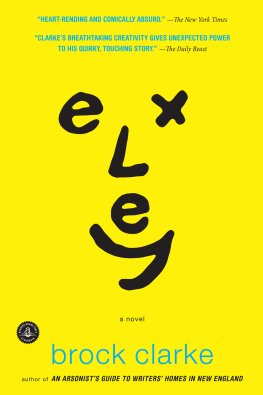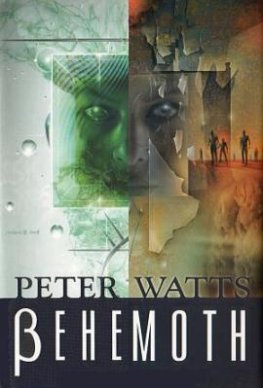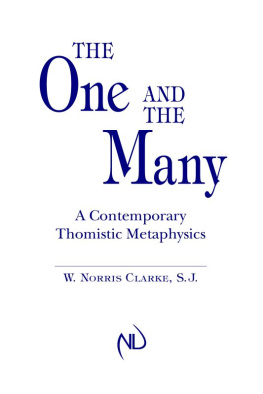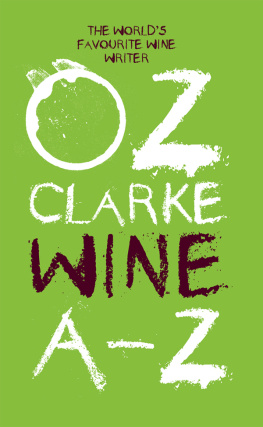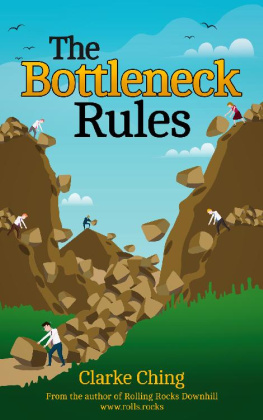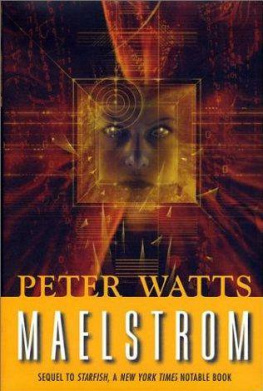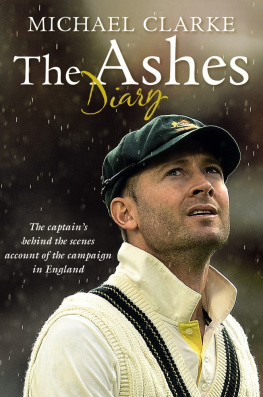J. Clarke - Dinoshift
Here you can read online J. Clarke - Dinoshift full text of the book (entire story) in english for free. Download pdf and epub, get meaning, cover and reviews about this ebook. year: 1996, publisher: Dell Magazines, genre: Science fiction. Description of the work, (preface) as well as reviews are available. Best literature library LitArk.com created for fans of good reading and offers a wide selection of genres:
Romance novel
Science fiction
Adventure
Detective
Science
History
Home and family
Prose
Art
Politics
Computer
Non-fiction
Religion
Business
Children
Humor
Choose a favorite category and find really read worthwhile books. Enjoy immersion in the world of imagination, feel the emotions of the characters or learn something new for yourself, make an fascinating discovery.

- Book:Dinoshift
- Author:
- Publisher:Dell Magazines
- Genre:
- Year:1996
- Rating:4 / 5
- Favourites:Add to favourites
- Your mark:
- 80
- 1
- 2
- 3
- 4
- 5
Dinoshift: summary, description and annotation
We offer to read an annotation, description, summary or preface (depends on what the author of the book "Dinoshift" wrote himself). If you haven't found the necessary information about the book — write in the comments, we will try to find it.
Dinoshift — read online for free the complete book (whole text) full work
Below is the text of the book, divided by pages. System saving the place of the last page read, allows you to conveniently read the book "Dinoshift" online for free, without having to search again every time where you left off. Put a bookmark, and you can go to the page where you finished reading at any time.
Font size:
Interval:
Bookmark:
J. Brian Clarke
Dinoshift
Stipulation:
The present is inviolable. It cannot be altered by changing the past. The future is not so inviolable
When Frederick Marion Degru-ton published his paper Phased Timeshift Dispersion in the summer of 2119, critics quickly recalled the ancient arguments against time travel. As one writer succinctly put it, It makes wonderful science fiction. But fiction can tolerate the contradiction, for instance, of a man going back in time and becoming his own ancestor. Science cannot.
Nevertheless it was not long before Degruton was reluctantly persuaded into a TV studio, where interviewer-journalist Gail Sovergarde turned on her famous charm.
Dr. Degruton, I understand your paper has created quite a stir in the scientific community I mean, time travel! So I hope you will forgive me if I ask a question I am sure you have already heard a thousand times. Can we now change the past?
No.
A small man, sandy-haired and painfully shy, Degruton had decided the only way to preserve his equanimity before this disconcerting female, was to say as little as possible.
I am so glad you said that. Her smile made him melt. Because to change the past is to change the present. Is that not so?
That is the accepted He shuffled uncomfortably, way of looking at it.
But a valid one, surely?
I suppose so.
Ah. She nodded knowingly. So despite your discovery, I still cannot go back and dispose of my grandfather before he had children.
Good heavens! Degruton was shocked. Why would you want to do that?
Disconcerted by the scientists literal interpretation of the elderly cliche, Sovergarde hurriedly rephrased. Then if we cannot change the past, what can we change? Presuming, of course, time travel is possible.
Read my paper, Ms. Sovergarde. Believe me, the calculations have been checked and double-checked by the top people in the field.
She held up a folder. Triplechecked, Dr. Degruton. I have been assured your reasoning is impeccable. So, again, I ask the question. What can we change?
Not so much change, as create.
I beg your pardon?
If we go back a couple of thousand years and arrange for theah removal of a certain itinerant preacher before he started his ministry, Christianity would never have happened. Right?
Of course. That is obvious. Obvious only in another continuum, Ms. Sovergarde. Not in our ownin which Christianity is an incontrovertible fact.
I see. After a slight hesitation, Sovergarde asked thoughtfully, You are talking about an alternate history, arent you?
Well I Degruton looked at the woman with dawning respect. Never much interested in the comings, goings and various scandals associated with the current crop of video personalities, he came to the interview assuming this was just another shallow, statuesque brunette with the gift of gab and an astronomical clothing budget. But with the sudden realization that Sovergarde was more than just flesh-and-blood cardboard, the scientist blushed and began to stammer. Yyes, in aahemmsort of
Her smile was disarming, and with an effort of will he forced himself to meet her questioning gray eyes. Somehow, her projection of innocent curiosity inspired confidence. You are familiar with the concept of alternate histories, Ms. Sovergarde?
In a science-fictional sort of way. As I understand it, if someone from our time goes back and changes or prevents some pivotal event of history, instead of altering our past, the time traveler has by his action created a branching alternate in which, for instance, Christianity never existed. That alternate would be another timeline, parallel yet separate from our own.
Timeline is the popular word. I prefer continuum. Anyway, in the greater multiverse of which our own cosmos is but an infinitesimal part, it is conceivable that infinite possibilities already coexist in an infinite series of continuums. By the way, I erred when I implied alternates are created. Any manipulation of a past event simply opens the door to the most appropriate of those infinite possibilities.
But it is so theoretical.
Not at all. In fact, my colleagues and I have already demonstrated the concept in the laboratory. The partitions are not impenetrable, you see. We set up an experiment in which we changed an event in past time, returned to the present, and then shifted sideways to observe the consequences of our manipulation. Sovergarde lifted both hands in protest. Partitions? Sideways? Sorry Doctor, you just lost me.
The experiment was on a modest scale of course, involving nuclear reactions over nanoseconds of time. Partitions are simply the boundaries separating the alternate continuums from each other as well as from Prime, which is our own continuum. Sideways refers to our ability to shift across those partitions.
Getting back to Christianity Suspecting he should have chosen a less controversial example, Degruton sighed. If our time traveler somehow prevents Christianity getting off the ground so to speak, he then has the remarkable option of being able to follow the development of a non-Christian continuum at any moment during its history, up to and including the alternates calendar equivalent of our present.
But not beyond?
Beyond?
Into the future.
Degruton looked wistful. That would be interesting, wouldnt it? He frowned and shook his head. Unfortunately, that is one barrier beyond which we cannot go. As with the speed of light, nature has its limits.
So the future can only arrive the old-fashioned way?
By becoming the present? Precisely.
Sovergarde pursed her lips with dis- appointment and consulted her notes. About this technique
We call it Shift Dispersion, or SD.
All right, SD. Does it have a practical application?
Does a baby, Ms. Sovergarde? Give it time.
Then do you have anything in mind? I mean, on a larger scale than the experiment you just described? Oh indeed.
Can you tell me what it is?
Not really. After all, we are at the beginning of years of development work. But perhaps Degruton hesitated, then added weakly, Really, it is rather premature.
The famous Sovergarde smile. Oh Doctor, do tell.
Degruton blushed, took a deep breath. Dinosaurs.
Ten years later.
The Francis Bacon was a big ship, originally constructed as a bulk carrier for the Mars run. Now rebuilt to carry the massive SD generator in the main hold, her Sovergarde fusion-drive had brought her to station above the ecliptic in just over nine weeks.
Despite the ships size, personnel quarters were limited and cramped. So the presence of Gail Sovergarde, in addition to a dozen scientists and technicians, was initially resented by those of the ship s crew who assumed the journalists only asset, other than her looks and her networks financial resources, was her famous grandfather. But Gails willing acceptance of routine chores, plus her charm and obvious intelligence, soon made her friends with everyoneincluding, to Degrutons surprisethe other four women on board.
Degrutons own relationship with this surprising female had matured over the years to something he thought was even better than marriage. Their commitment had no formal contract, their work frequently kept them apart, yet every reunion had the giddy, sensual aspect of a couple of teenagers discovering each other for the first time.
But it was entirely business when Gail entered SD Control as Degruton and a couple of colleagues anxiously watched data scroll across a screen. Hows it coming?
Without looking around, Mary Scheaffer waved a hand. Hi, Gail.
That bad, huh?
Not really. Just the usual glitches. Gail glanced at the countdown display on the bulkhead. Seventeen hours to go. Are we going to make it?
Font size:
Interval:
Bookmark:
Similar books «Dinoshift»
Look at similar books to Dinoshift. We have selected literature similar in name and meaning in the hope of providing readers with more options to find new, interesting, not yet read works.
Discussion, reviews of the book Dinoshift and just readers' own opinions. Leave your comments, write what you think about the work, its meaning or the main characters. Specify what exactly you liked and what you didn't like, and why you think so.

